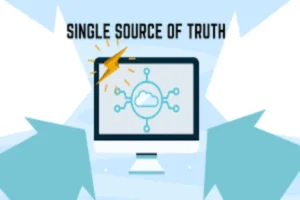How Some Traders Are Learning to Trade Smarter?

Long seen as a difficult and sophisticated activity, trading has several times, traditional methods call for several hours of research, emotional decision-making, and large financial risk. Contemporary traders are learning creative techniques that fundamentally alter the way trading is done. You are ready to investigate a new paradigm stressing smart resource management, strategic thinking, and efficiency.
Understanding the Smart Trading Methodology
Smart trading offers a breakthrough method for approaching financial markets. Advanced tools and smart approaches let you maximize your trading results. The core concept is to function more efficiently rather than expending excessive time and effort. Systematic analysis substitutes for gut-feeling decisions. Real-time insights made possible by sophisticated trading systems were not available to individual investors until recently. Using sophisticated algorithms and machine learning models to recognize market patterns and possible opportunities with hitherto unheard-of accuracy, data-driven decision-making becomes the pillar of smart trading.
Modern risk management tools let traders apply more exact position sizes and constantly shifting hedging approaches to fit evolving market conditions. Smart trading approaches build a complete framework for more intelligent and strategic financial decision-making by combining several data sources, including economic indicators, social media sentiment, and real-time market movements.
Technology’s Role in Intelligent Trading
Technological developments have fundamentally changed trade approaches. You now have access to strong instruments meant to simplify intricate market analysis. Automated trading systems run strategies with speed and accuracy unheard of for human traders. Using these technological developments, strategic traders find chances and effectively reduce risk. By means of clear graphical representations, advanced data visualization tools help traders understand complicated market trends and patterns, so converting raw data into useful insights.
With ever-increasing accuracy, predictive analytics driven by advanced machine learning models can now foretell possible market movements, therefore giving traders a more proactive approach to investing strategy. By allowing real-time data processing, cooperative analysis, and seamless integration of worldwide market information across many platforms and geographic locations, cloud computing and distributed network technologies have significantly improved trading capabilities.
Risk Management Through Smart Strategies
Modern trading depends much on advanced risk control strategies. You can put in effect all-encompassing plans to safeguard your money. Data-driven methods help to make diversification more sophisticated. Through ongoing market situation monitoring, trading algorithms assist in controlling portfolio risks. These intelligent trading tools allow more deliberate and strategic investing choices. Dynamic risk assessment features of machine learning algorithms enable constant analysis of market correlations and possible volatility situations to real-time portfolio allocation adjustment. Traders preparing for a prop firm challenge must develop strong risk management skills, ensuring consistency and discipline under varying market conditions. By means of thorough stress tests and scenario studies, advanced statistical modeling approaches help traders find such weaknesses before they become major financial hazards.
Psychological Aspects of Intelligent Trading
Long ago, emotional decision-making presented a major obstacle in trading. Structured trading methods help you to overcome psychological obstacles. Discipline techniques help to eliminate impulsive responses from investment choices. Advanced training courses and educational tools enable traders to create mental models supporting consistent performance. Technical study becomes secondary in importance when one considers market psychology. Advanced trading education now mostly consists of cognitive bias awareness and mitigation, which enables investors to recognize and stop unconscious decision-making habits that could compromise financial success.
Professional trading education including mindfulness and psychological resilience strategies more and more to help traders stay emotionally balanced under demanding market situations. A deeper understanding of decision-making processes, thanks to neuroscientific research, enables traders to create more complex mental techniques that maximize cognitive performance and lower the effect of emotional interference in important financial decisions.
Emerging Trends in Smart Trading
The direction of trade keeps changing fast. Further integration of advanced analytics, blockchain technologies, and artificial intelligence is to be expected. Globally, financial markets are growingly linked and sensitive. Traders trying to keep a competitive edge in this ever-changing environment will depend mostly on constant learning and adaptation. Offering more open and easily available trading tools that potentially drastically change investing environments, decentralized finance (DeFi) platforms are challenging established financial infrastructure. Advanced technologies, including artificial intelligence, machine learning, and real-time data analytics, are converging to provide ever more complex trading systems capable of dynamically adjusting to fast-changing worldwide market circumstances.
Conclusion
Smart trading offers a revolution in financial markets. You could get the chance to apply strategic approaches and modern technologies. Success depends on constant learning, technological adaptation, and focused decision-making as well as on Trading is about working more deliberately rather than about working harder. The future of trade is in the perfect mix of human insight and technical capacity, building a dynamic ecosystem where strategic intelligence and innovative tools cooperate to open hitherto unheard-of investment possibilities.







